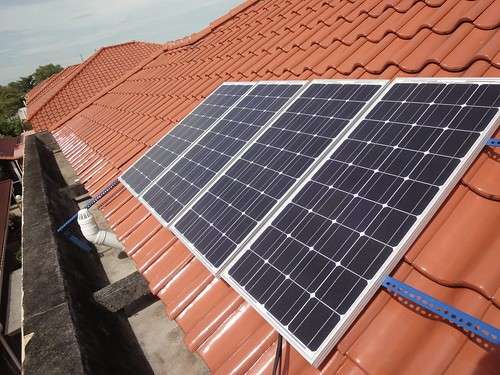Climate change is a reality, and we all know that carbon is produced when coal or oil is used to generate energy. Therefore, we have to consider more sustainable options for the production, distribution, consumption, and disposal of the electricity we use. In addition, we have to view all of its effects on the environment.

Coal and gas are nonrenewable resources. However, these once abundant resources are now becoming scarce, so it’s the best time to find renewable options. In addition, it has been discovered that these are not the only energy sources available in recent years.
“Carbon-free” resources are ready for use, such as solar, wind, hydro, and nuclear. The only challenge was the process of harnessing and storing energy from these carbon-free renewable sources.
But thanks to technology, more households, businesses, and industries can take advantage of these sustainable energy sources. Solar energy is carbon-free, and it is a renewable source of energy. The sun is a tremendous resource, and it can generate clean and sustainable electricity. Therefore, it has more positive benefits than carbon-producing fossil fuels.
There are three significant benefits when shifting from fossil fuels to solar energy. Let’s check each one below.
Economic Benefits
There are two ways to measure the economic benefits of going solar; first, by calculating the total cost of the system’s life. In Oregon, the upfront cost is calculated by subtracting incentives and tax credits.
The government will give you 26 cents in tax credits for every dollar spent on your solar system cost. So, for example, if the cost of the system is $20,000, the government will give back $5,200.
Second, by calculating the payback. The payback is decided by the number of years you need to pay off the system cost from energy savings.
In addition, homes with solar energy reduce their bills between 14 to 54 percent. Usually, utility companies will keep track of the amount of energy you consume monthly. But, when you go solar, the utility company will need to track the amount of energy you produce.
Each kWh (kilowatt-hour) of energy you produce using solar energy is equivalent to the retail market value you purchase from your utility company. Therefore, you can save up on energy credits using the solar power created during summer and using them during winter.
For example, your solar energy system generates 1,000kWh of solar power in a month. However, you only consume 800kWh for that month, and then you will have extra 200 solar credits that can be carried over to the next month.
But, if you consume more energy you produce, then the energy credits you have stored up will be used. So, you can consider it as an energy storage bank, and a Net Energy Metering helps keep track of it all.
A Net Energy Metering will keep track of both. Your power or utility company will subtract the total energy you produce from the total amount of energy you consume. Thus reducing your monthly power bill. In addition, if there are additional energy credits, they will be carried over to your next month’s bill.
Non-Economic Benefits
Solar systems retain their value by 97 percent. Therefore, it adds more value to a home or a property making solar homes sell twice as fast as their traditional counterparts.
According to Zillow, homes with solar energy are sold 3 percent more, which means that you can sell an average home with solar power installed for an additional $9000. Solar systems provide a hedge, especially in depressed housing markets.
Environmental Benefits
Going solar helps reduce carbon emissions. Did you know? A yearly reduction in carbon emissions by using the electricity generated from an average 4kW solar system is already equivalent to the carbon absorbed by half an acre of trees.
It also promotes local control of energy consumption. Each household and business has its unique power requirements. Going solar gives you more flexibility because it provides homeowners and business owners more control over their energy use.
It can also reduce electricity distribution because you already produce the energy you need to consume.
What Are The Steps To Go Solar?
First, you need to assess with a solar energy provider. Your solar potential is based on the following:
- rooftop characteristics
- electricity rates
- available tax credits
- available cash incentives
Second, you can ask and compare all available options to clearly understand how different scenarios can impact your short-term and long-term costs.
Last, if solar looks like a good investment for you, you can check out Smart Solar Energy for more info. Go ahead and click this link, https://www.smartsolarenergyco.com/solar-panels-eugene-oregon/.
Conclusion
Going solar allows you to produce your electricity and, at the same time, reduce your electricity bill and decrease your carbon footprint. So if you think going solar is for you, check the link above for more details.





